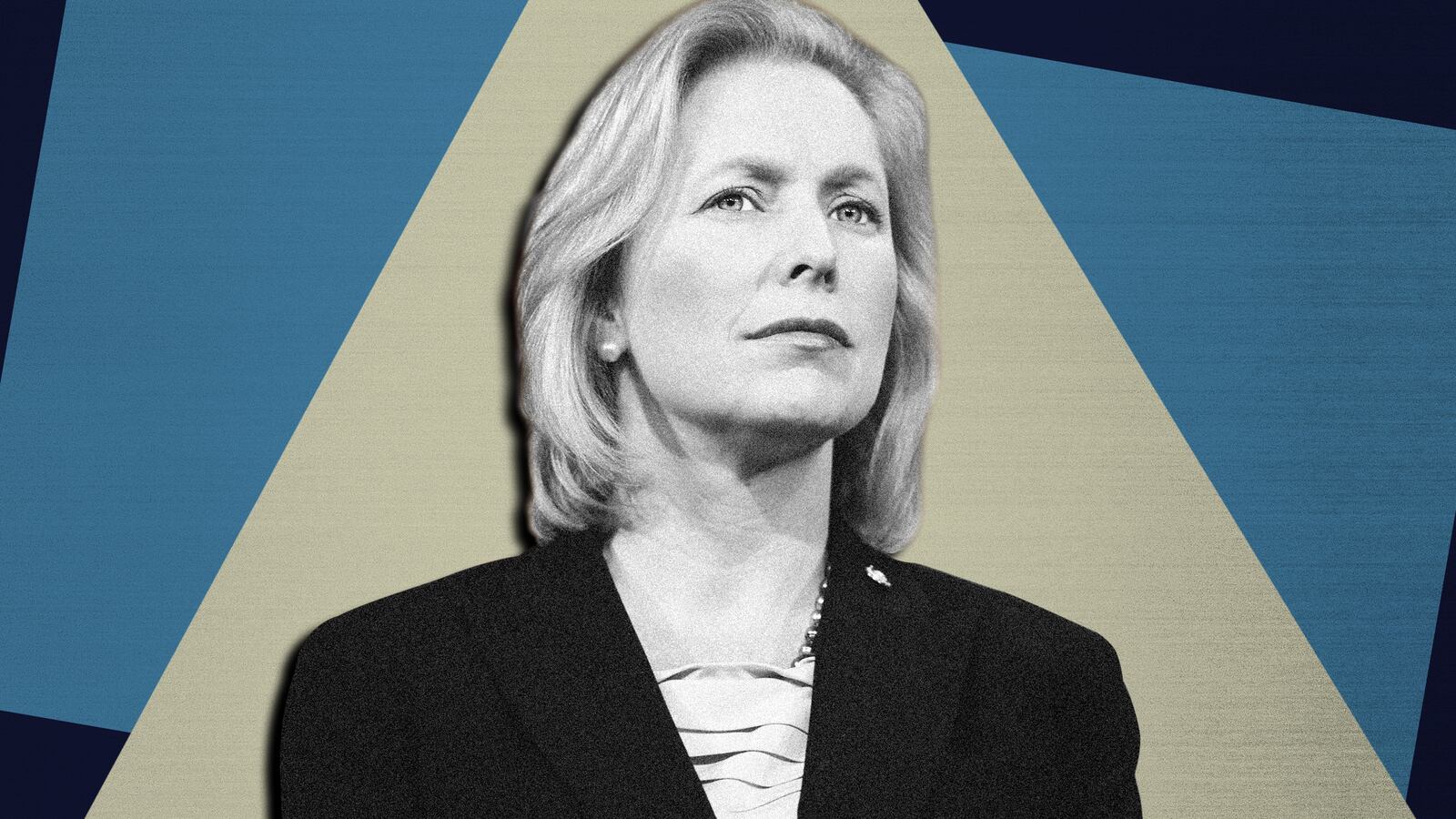A year ago, Sen. Kirsten Gillibrand called for her Democratic colleague Al Franken to resign after multiple allegations came out of forcible kissing and touching, along with a photo of him as a comedian giddily pretending to fondle a sleeping colleague.
He did, and now she’s facing backlash from a handful of big Democratic donors who think she’s feeding off the blood of fallen men like some sort of #MeToo zombie. Those donors’ objections, it’s no surprise, are filled with old-school sexism about opportunism and ambition, but her spokesman’s claim in response that anyone who holds her responsible “for someone else’s behavior toward women is wrong” doesn’t ring true either.
It’s an argument that undermines her own agency.
The fact is Gillibrand executed a well-reasoned power move, which is exactly why she can and should take responsibility for it. Her call for Franken’s resignation was grounded in solid political logic: The Democrats could not credibly ride the #MeToo wave if they remained compromised. Why risk supporting a single colleague only to lose ground with millions of women?
The cost-benefit analysis made a lot of sense, and far from destroying the Democratic party, as her critics contend, it’s paid off brilliantly. Democrats won a sizable majority in the House thanks to a surge of female candidates and the women who voted for them. It also sent a shock wave through the country that women’s well-being and safety are not expendable for the sake of powerful men.
Gillibrand has earned the talk about her as a 2020 contender. Well before the #MeToo movement, she was holding hearings on rape in the military and fighting for survivors of campus sexual assault. Back then she was mostly panned for a supposedly quixotic agenda that exactly no one would describe as particularly career-advancing.
None of this necessarily makes her likable to male voters, or even plenty of women, which perhaps explains her reticence to fully own her Franken decision. Instead, she’s flitting around the vague suggestion that his resignation had nothing to do with her, and using lofty language to claim even higher ground with the same spokesman stating that, “Kirsten has never been afraid to stand up for what she believes in and never will be… we have to put our morals and the valuing of women ahead of party loyalty.”
Except if we’re talking about local politics.
For all her fanfare about getting women “off the sidelines” to run for office, the senator from New York plays it safe in her own backyard. She backed the Queens Democratic boss Rep. Joe Crowley over Alexandria Ocasio-Cortez, whose only political support prior to winning election came from two other insurgent women, including Cynthia Nixon.
Nixon would’ve been the first female governor of New York, but Gillibrand didn’t support her either. Instead she fell in line behind Andrew Cuomo, who ran a horrifically sexist campaign demeaning Nixon as “unhinged” and drunk off too many cosmopolitans.
She’s also steered clear from condemning the various #MeToo eruptions in Albany, never once calling for former Assembly Speaker Sheldon Silver to resign even after revelations that he covered up rape, abuse, and systematic sexual harassment. And for years, she happily ingratiated herself with the Clintons—who approved of the decision by New York’s then-governor to have her appointed to the seat Hillary left to run for president—despite the litany of allegations against the 42nd president.
Gillibrand now says Bill should’ve resigned, since “things have changed today,” but she only arrived at that public realization after first benefiting greatly from his influence and donor network.
Tweeting in response to the Politico story about angry donors (it was headlined "Franken scandal haunts Gillibrand’s 2020 chances"), she wrote that “silencing women for the powerful, or for your friends, or for convenience, is neither acceptable, nor just.” That may be, but the reality is of course more complicated. Franken himself might know something about that, as one of the few men in the early days of #MeToo to genuinely apologize.
As she contemplates a run for president, Gillibrand’s challenge now is to balance the very brave things she’s done with the compromises she’s made along the way. We don’t want politicians to embrace hypocrisy, but she should be honest about her choices and why she made them. Her hesitation speaks to the likability trap that uniquely penalizes women in power, but hiding behind a defense that gaslights her opponents creates a moral universe populated only by heroes and villains, when Gillibrand is neither.
She's a human, like the rest of us, trying to make sense of what #MeToo means. Acknowledging that could be her most daring move yet.







